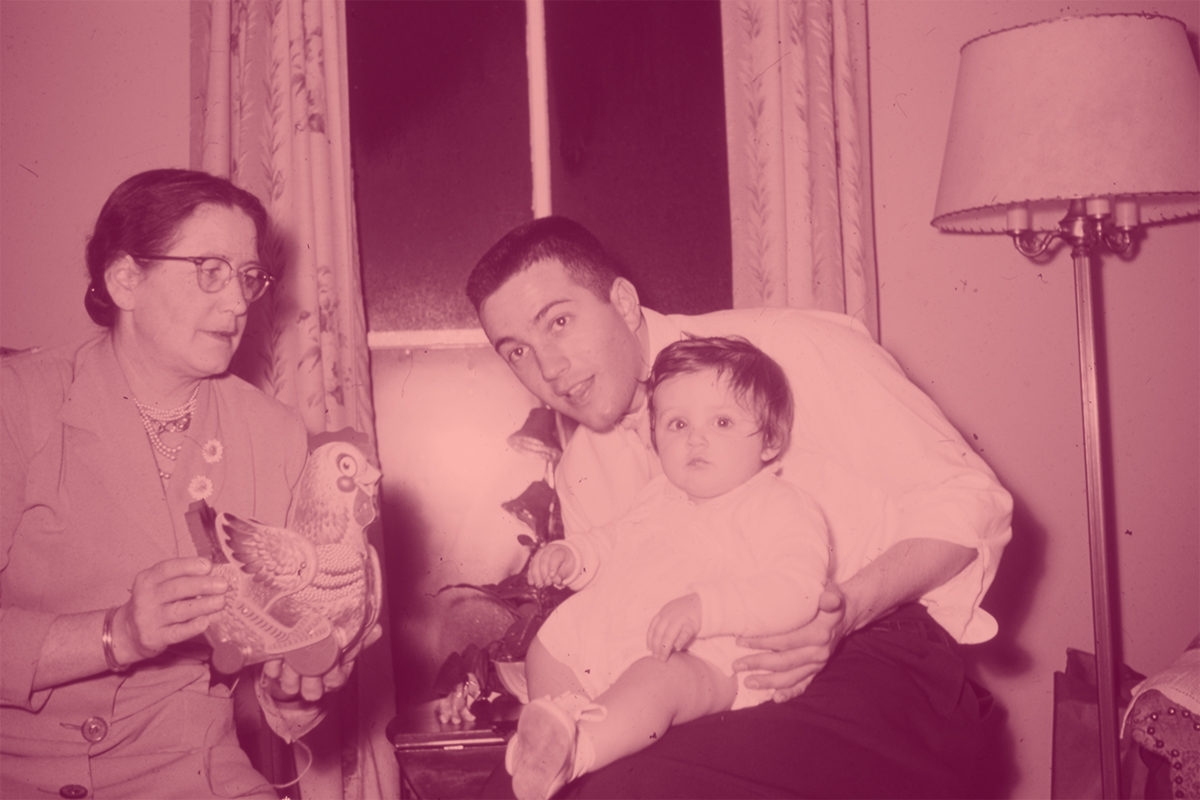“I need you to do something for me,” my dad tells me from his nursing home bed. “Can you fill out my voter registration form and mail it back?”
I’m about to nod in agreement when, out of the corner of my eye, I see my 2-year-old trying to pull some cords out of the wall.
“Hey,” I tell my son. “Please don’t pull those cords out of the wall. Do you want to play with your ball instead?”
I hand my son his beach ball. “Throw this to Poppy,” I suggest.
My son immediately drops the cords and grabs the ball out of my hands, tossing it as hard as he can. He accidentally knocks over a cup of ice water, which is rapidly turning into a puddle that’s spreading across the floor. I frantically grab paper towels to clean up the mess before anyone slips on ice chips. My son laughs.
“I also need you to help me set up my Amazon Fire TV Stick,” my dad says, ignoring the mess. “And I got this bill from Medicare, but I’m not sure if I should pay it. Can you look at this?” He waves another piece of paper in my direction.
Meanwhile, my toddler — bored because no one is playing catch with him and there’s no water left to knock over — darts out of my dad’s room and bolts full speed down the hallway. With my hands full of sopping wet towels, now dripping all over my shorts, I run down the hallway to catch him before he accidentally mows down an innocent resident.
This is chaos. This is my life — and that of so many others: We are the sandwich generation, a group of more than 20 million Americans who are stuck between the needs and wants of two generations, our parents and our children.
Caring for a parent at the age of 35 was never something I expected to do. I always imagined that, at this age, I’d be juggling motherhood, work, and marriage. Which I am. But I never considered that consulting an estate attorney, pre-planning a funeral, hiring an agency to help with Medicaid, and vetting nursing homes would also be part of my responsibilities at this busy stage of life.
After my dad had his second stroke in 2018, his health declined rapidly, both physically and mentally. Due to his inability to care for his basic needs — combined with multiple falls and short-term memory loss — we made a decision as a family to place him in a long-term chronic care facility. I was fortunate enough to find a great place just 10 minutes away from my house, and, after channeling my inner superhero, I volunteered to take on the roles of caregiver and advocate — despite having an 18-month-old at home who already required this from me.
I was really looking forward to having my dad so close to my home, but the transition was harder than anyone could have predicted: During his first three months at the facility, my dad was hospitalized five times. It took time to adapt to this kind of ongoing crisis. For example, I used to keep my phone on silent when I went to bed, but after I missed a call from his nursing home at 4:00 a.m. — no one ever calls with good news at 4:00 a.m. — I realized I always need to keep my ringer on.
Between the hospital visits, follow-up doctors’ appointments, meetings with attorneys, and mountains of paperwork, I was drowning in my obligations. There just weren’t enough hours in a day, nor enough days in the week, to care for my dad as well as be a wife and a mom with a full-time job. I needed help. I didn’t want to just survive this stage of my life; I wanted to thrive.
After much soul searching and testing new strategies, I’ve made some major changes. The following tips have helped make a profound impact on my ability to handle this new stage of my life, and I hope they can help others, too.
1. Seek therapy
Between coping with anticipatory grief and balancing work and motherhood, I was a hot mess. I was anxious, sad, and exhausted too much of the time. I’d find myself in work meetings, my mind perseverating over whether or not I told my dad’s new doctor about his previous surgeries, or I’d be at the playground with my son, looking for any excuse to sit down on a bench, my energy zapped by excessive emotions. Therapy not only normalized these feelings for me, but it also gave me an outlet to work through them.
2. Set boundaries
My wonderful therapist — see above! — gave me permission to set some boundaries, as I realized I was making my father’s needs more important than my own. My dad and I agreed that we’d chat by phone once a day, but I’d only visit once a week unless there was a medical emergency. This freed up time for me to refocus on work and parenting, and it gave me the breathing room I needed to reflect and decompress.
3. First business, then pleasure
These days, during our weekly visits (see #2), my dad and I take care of business first: We start our time together getting the financial, legal, and health-related logistics out of the way, which allows us to spend the rest of the time just being a family. He tells me stories about relatives from past generations, and I write them down so that I can continue sharing them – like the time my great grandmother accidentally dyed her hair blue and kind of loved it.
4. Ask for help
I pride myself on being a strong, independent woman, but there is a point when too much self-reliance becomes detrimental. My husband took on more parenting duties — sometimes so I could visit my dad in the hospital without a toddler in tow, and sometimes so I could just lay in bed and feel all of my feelings for a minute. I also gave some of my responsibilities to my brother. Though he lives in another state, he was still able to help with some of the online research of services needed. Being honest and vulnerable with my family helped them understand just how much I had on my plate, and they were happy to come to my rescue.
5. Practice gratitude every day
One of my favorite Jewish quotes is “Who is rich? Those who appreciate what they have” (Talmud—Avot 4:1). I decided to apply this to my own life. What if, instead of walking around with my responsibilities weighing heavily on my shoulders, I used the precious time I have left with my dad as an opportunity to find joy? This is much easier said than done, of course, but it’s something I try to do every day.
When I remind myself that life is finite and fleeting, I try my best to make every moment with my dad count. For example, my dad has an amazing singing voice, so once our “business” is done, I love listening to him sing the same songs to my son that I cherished as a child. It’s during these small, seemingly ordinary moments that I find joy again.
I don’t know if my dad and I have weeks, months, or years left together, but I do know that I don’t want to spend another second feeling beaten down by my long list of obligations. With the help of my family, my therapist, and some ancient Jewish wisdom, I now see my responsibilities as a gift, reminding me that my life is filled with meaning, purpose, and love.
Image via The Joy of Film/Unsplash









